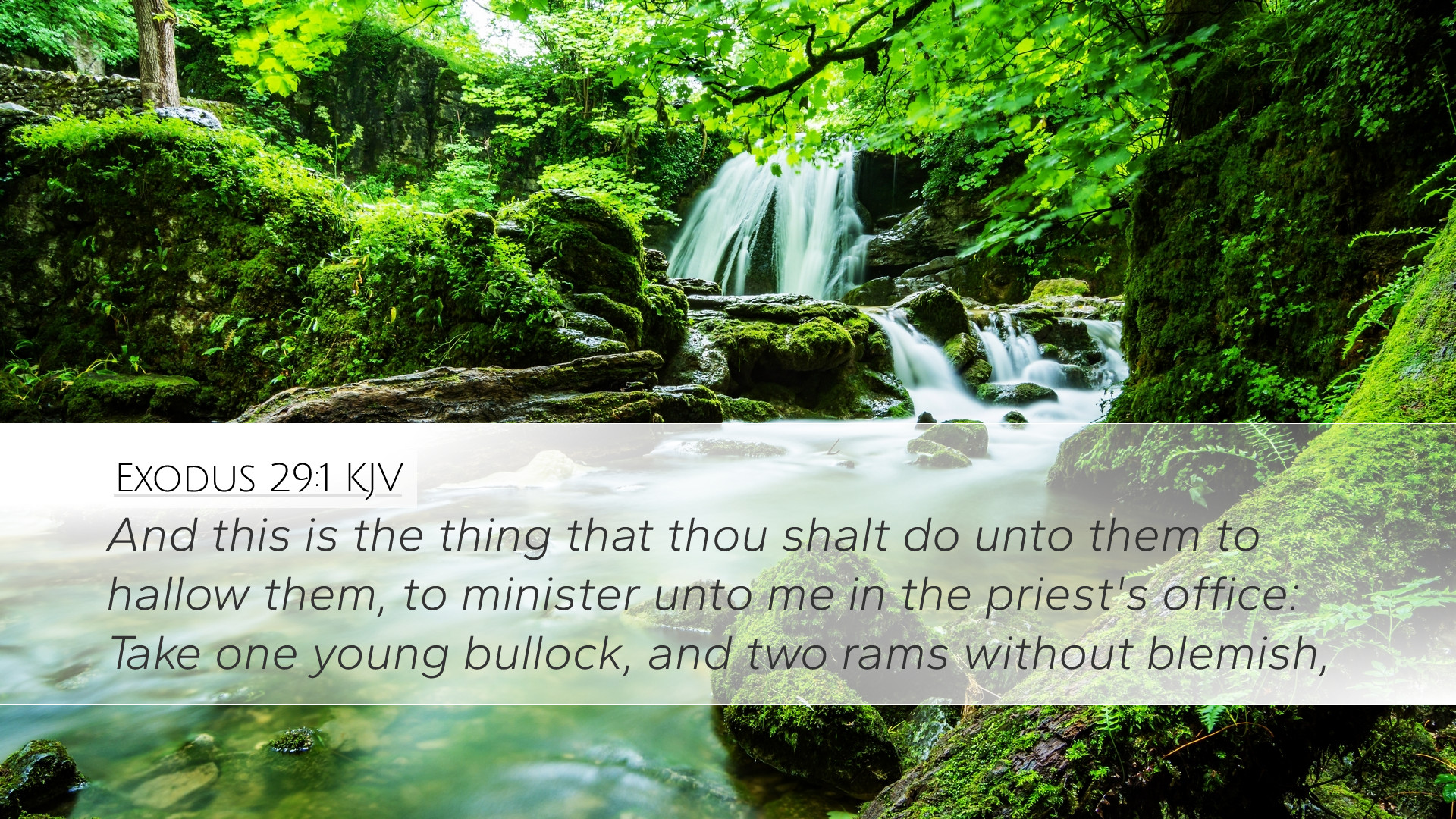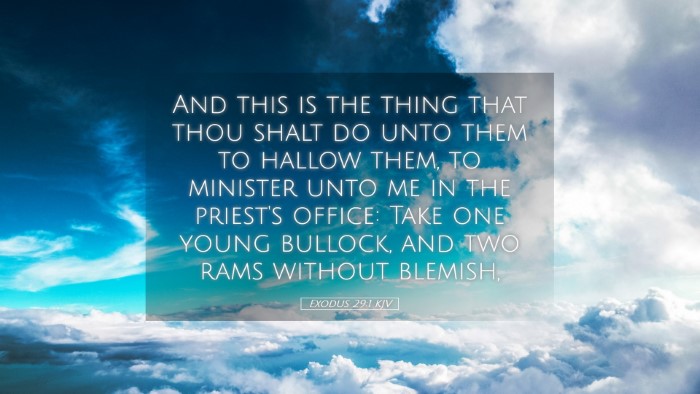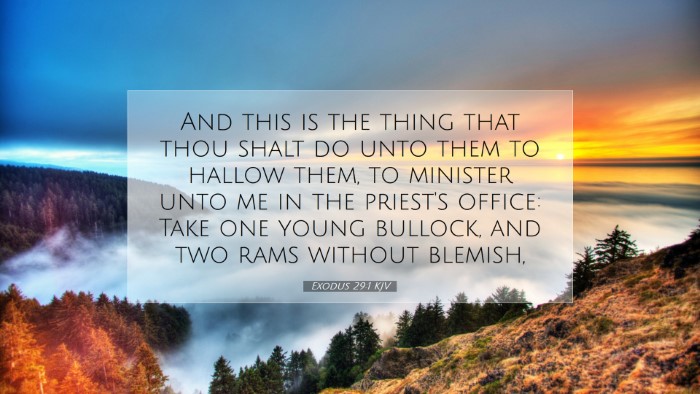Commentary on Exodus 29:1
Exodus 29:1 introduces God's instructions for the consecration of Aaron and his sons as priests. This verse serves as the starting point for a discourse on the sacrificial system, the role of the priesthood, and the significance of consecration. The verse states:
"And this is the thing that thou shalt do unto them to hallow them, to minister unto me in the priest's office: Take one young bullock, and two rams without blemish."
Exegesis and Interpretation
The primary focus of Exodus 29:1 is the establishment of the priesthood. This element of worship is pivotal in the larger narrative of the Israelites' relationship with God. The act of consecration signifies not only the priests' separation but also their role as mediators between God and His people.
Contextual Analysis
Matthew Henry emphasizes the importance of the sacrificial offerings in the context of holiness and service to God. The bullock and rams are not mere offerings; they symbolize the life required for the priestly role. This notion resonates with the overall theme of substitution and atonement within the sacrificial system.
The Purpose of Consecration
According to Adam Clarke, the phrase "to hallow them" reflects a divine intention to set apart Aaron and his sons for special service. This separation is essential as it illustrates the holiness of God and the need for mediators who are themselves dedicated to His service. The explicit mention of "young bullock" and "two rams" indicates the seriousness of this undertaking; it is not to be performed lightly or without due consideration.
Significance of the Offerings
- Symbolism of the Bullock: The bullock signifies strength and sin-bearing capability. In ancient cultures, bulls were often viewed as powerful animals, representing strength, which is crucial when serving in a role that bears the sins of the people.
- Role of the Rams: The rams without blemish symbolize purity and fitness for sacrificial service. Albert Barnes elaborates on the necessity of these animals being free from any defects, emphasizing that the high standard of offerings reflects the holiness of God.
Theological Implications
This verse is rich with theological significance. It highlights the gravity of priestly duties and the required purity of those serving in such roles. The call to holiness is echoed throughout Scripture, demonstrating that God desires not only reverent service but also the spiritual integrity of His servants.
Priestly Mediation
In noting the phrase "to minister unto me," Henry draws attention to the intimate relationship between God and His appointed leaders. The priest's role is not only functional but relational, emphasizing their duty to represent God’s people as well as God’s presence to them.
The Call to Holiness
As outlined by Clarke, the consecration process reflects the heavenly reality of service. The ministry requires holiness, and only those who are set apart can effectively lead others into the presence of God. Ecclesiastes 5:1 advises the reverence needed when approaching God, which is illustrated in the significance of the priestly service.
Practical Applications for Today
For today's pastors, students, and scholars, Exodus 29:1 provides a rich framework for understanding the nature of service within the church. Here are some applicable insights:
- Commitment to Holiness: Just as Aaron and his sons were called to consecrate themselves, modern believers are also called to pursue personal holiness and integrity in their leadership roles.
- Understanding the Cost of Ministry: The bullock and rams illustrate the sacrifices required in ministry. This serves as a reminder that effective service often demands significant personal commitment and sacrifice.
- The Role of Mediators: The priesthood foreshadows Christ, our ultimate mediator. Understanding this helps deepen our appreciation for the sacrificial system and its fulfillment in Jesus.
Conclusion
Exodus 29:1 serves as an important theological and practical teaching point for understanding the nature of priestly ministry and service. The insights drawn from public domain commentaries reflect a profound recognition of the importance of holiness, the sacrificial system, and the serious role of mediators between God and humanity. As believers strive to reflect Christ's character in their lives and ministries, the principles of consecration and service highlighted in this verse remain eternally relevant.


